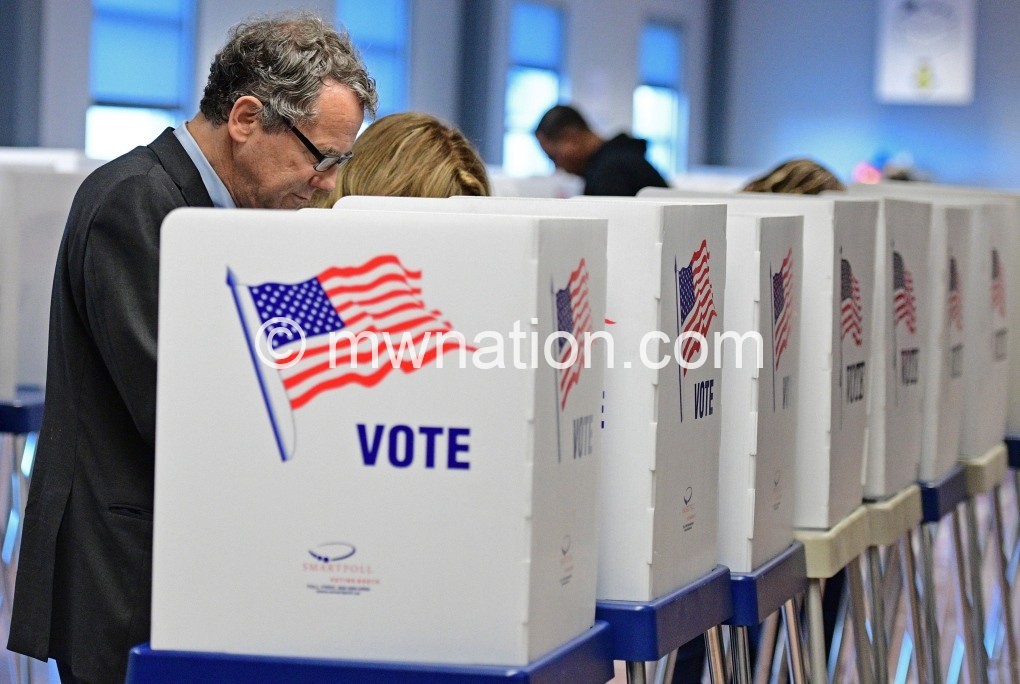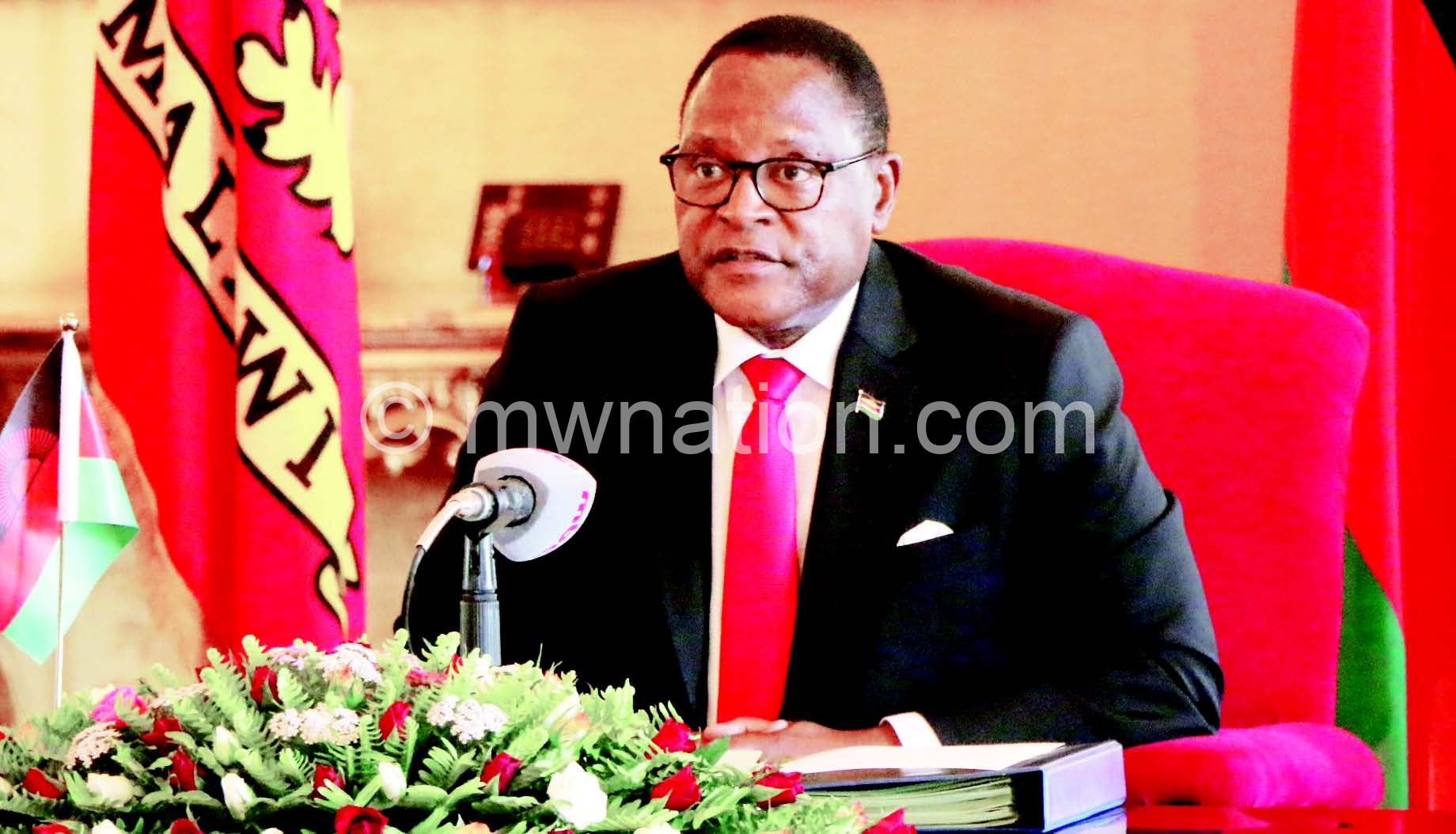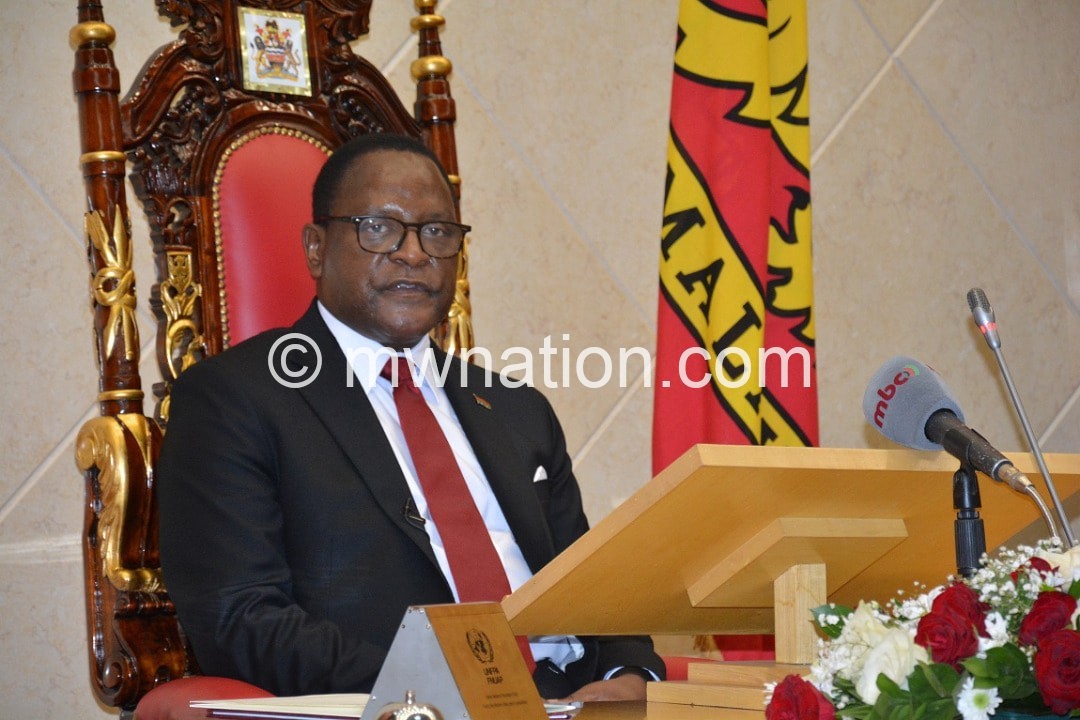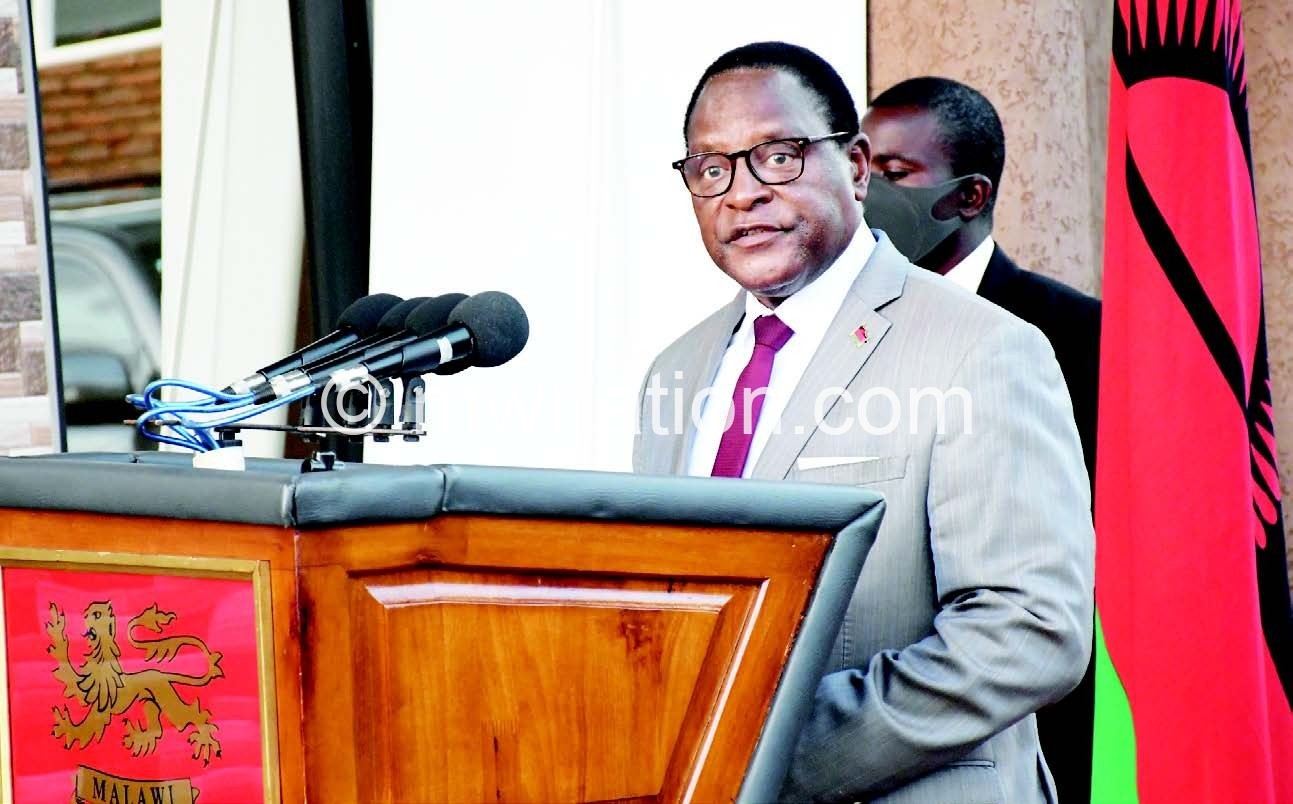Parastatal heads are a burden to taxpayers
On the streets, news went around this week that some heads of government ministries, departments and agencies were sent back for arriving late at meeting with Vice-President Saulos Klaus Chilima.
They had forgotten that SKC, as we fondly call him, does not subscribe to Malawian time notion.
Chilima had called for interface meetings with principal secretaries (PSs), heads of parastatal organisations, the private sector and local councils on the implementation of the reforms agenda in the new administration of President Lazarus Chakwera.
But some senior parastatal officials reported late for the meeting and were locked out at the Bingu International Convention Centre (BICC) in Lilongwe on Tuesday.
This is a good start for SKC. It sends a strong signal to others that government is serious. Our government is littered with such people, who cannot manage their own time and that of others. These are time wasters who should not be allowed to continue to burden taxpayers.
As SKC rolls out reforms, there should be no mercy. Because, for years, taxpayers have been burdened by parastatal heads and employees who do very little to justify the huge amount of cash they take home as pay.
For years, parastatal heads have spent more time at State events, clapping hands for the President when the institutions they are supposed to lead are failing apart.
If you look at the books of the more than 60 parastatals that directly or indirectly benefit from taxpayer funds, not many make profits or make enough to survive on their own.
In the 2019 Annual Economic Report almost 90 percent of the parastatals had their working capital negatively impacted, after a worsened liquidity position.
The report says by December 2018, Blantyre Water Board’s (BWB) liquidity position continued to be weak and below desirable levels at a ratio of 0.37:1, meaning that the board was still unable to cover its current liabilities as they fall due.
During the same period, the liquidity positions of Central Region Water Board (0.73:1), Northern Region Water Board (NRWB) (1:1), Malawi Housing Corporation (0.62:1), National Oil Company of Malawi (1:1), Malawi Post Corporation (0.58: 1), Lilongwe Handling Company (1.87:1), Malawi Institute of Management and Airport Development Limited at 1.13: 1, were barely liquid.
In general, parastatal performance remains subdued despite government instituting reforms in over 40 State-owned enterprises, four years ago.
As pointed out last year by Professor of finance and corporate strategy at the Malawi Polytechnic James Kamwachale Khomba parastatals in this country are failing to devise new revenue streams and improve efficiency because reforms are often not translated into action.
It is comforting to read the Vice-President brief report after the meeting on Tuesday that he will not shy away from punishing these big kahuna’s if they do not justify their continued stay at failing organisations.
SKC has also promised to continue engaging individual parastatals on a quarterly basis to take stock of the gains to ensure that they improve on service delivery to benefit Malawians.
It’s sad as observed at the meeting that most parastatal CEOs keep on being transfered from one parastatal to another.
We agree with Chilima, the tendency must be reviewed.
“If one is incompetent in one organisation, they cannot become competent by simply moving to another parastatal,” SKC says.
Some of them should be allowed to go. It will be a huge relief to the taxpayer.





